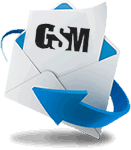
(Kitco News) – The global monetary order is straining under sanctions and tariffs, with gold emerging as the safe-haven winner, according to Steve Hanke, Professor of applied economics at Johns Hopkins University.
“Sanctions are for losers,” Hanke said. “Russia is the most sanctioned country in the world by far. Who’s paid for this? Well, the Europeans.”
Sanctions backfire and strengthen Russia
Independent trackers have stated that Russia is the world’s most-sanctioned state, with the G7 and EU’s REPO Task Force estimating that about $280 billion of Russian reserves remain frozen as of March 2025.
“The European economies are really in trouble,” Hanke said. “Putin is more popular now than he was before the war started.”
He added that freezing sovereign reserves undermines trust in global finance. “It is literally theft. The fundamental underpinning of any kind of capitalist society is property and the liberty to engage in trade and commerce.”
Germany, he warned, “is really in bad shape,” adding that manufacturing takes a lot of energy, and with the sanctions, “Russian fuel has been cut to a dribble.” In July 2025, the International Energy Agency’s review highlighted that high energy costs and the loss of pipeline gas continue to weigh on German competitiveness.
Tariffs are a hidden tax on Americans
Independent analyses by the Congressional Budget Office, most recently in June 2025, confirm that most tariff costs are passed through into U.S. import prices, raising costs for consumers and businesses. “Foreigners don’t pay the tariffs. Americans pay for the tariffs,” Hanke said. “It’s a sales tax on Americans and one of the biggest tax increases in U.S. history.”
Hanke pointed to Canada as an example of how retaliation hits U.S. producers. “Booze sales to Canada have dropped by over 60 percent since Trump got into the tariff war,” he noted. “Canadians are rallying around the flag and saying, ‘I’m not going to drink American booze anymore, and I’m not going to go to America for my vacation.’”
Tariffs are “a terrible tax,” he concluded. “It’s a Dumbo tax.”
Gold: the safe anchor as fiat weakens
“Gold is not a liability of any country,” Hanke stated, referring to the waning confidence in fiat, and said the metal is proving its role as the ultimate reserve asset. His advice to central banks was direct: “Bring your gold home,” he said, “and buy more gold. Gold’s going up. I just want to be long.”
He also suggested that sanctioned or inflation-prone countries consider a gold-anchored currency board. “I recommended that Turkey, Iran, and Russia use a currency board arrangement and have the anchor as gold rather than a fiat currency issued by any country. You’d have a local currency that trades at a fixed exchange rate with gold, backed 100 percent with gold reserves.”
On the U.S. side, Hanke seconded Judy Shelton’s recent comments to Kitco News about the idea of gold-linked Treasuries. “In principle, it’s fine. I’d want to see it worked out, but I certainly would keep it on the table as an option.”
Recession “baked in the cake”
The latest Federal Reserve H.6 data showed M2 at around $22.0 trillion. Hanke warned that U.S. money supply growth is too weak to sustain the expansion. “M2 is only growing at 4.5 percent a year. My golden growth rate, consistent with 2 percent inflation, is 6.3 percent.”
“That means the economy will go into a recession, and that’s baked in the cake,” he added. “It has nothing to do with what Trump or the Fed are doing today.”
Dollar under pressure, gold rising
Hanke said the U.S. dollar remains overvalued against the euro. “The fair value of the dollar-euro exchange rate is between 1.20 and 1.40. It’s trading at 1.17,” he noted. “I think the weakness will continue.”
The euro has been hovering near $1.17 in mid-August 2025 as markets price in an expected Federal Reserve rate cut.
As for positioning, he remains confident. “I’m sleeping tightly and long gold. Where the end of the road will be, we’ll decide that when we get closer. Right now, I just want to be long.”
Jeremy Szafron joins Kitco News as an anchor and producer from Kitco’s Vancouver bureau. Jeremy is a seasoned journalist with a diverse background covering entertainment, current affairs and finance.
Jeremy began his career in 2006 as a Journalist at CTV (Canada’s largest network), initially engaging audiences as an entertainment reporter before pivoting to business reporting focusing on mining and small-caps. His macro-financial and market trends analysis made him a sought-after commentator on CTV Morning Live and a regular on CTV News Network.
A notable milestone in Jeremy’s career was his 2010 Vancouver Olympic Games coverage, highlighting the Olympic community and hosting segments from various Country Houses at the games. Building on this experience, Jeremy developed an online video news program for PressReader, launching them into a new direction. PressReader is a digital newsstand with 8,000 newspaper and magazine editions in 60 languages from more than 120 countries.
In 2012, Jeremy ventured into his own digital media project, creating The Green Scene Podcast, swiftly gaining over 400,000 subscribers and establishing himself as a key voice in the emerging cannabis industry. Following this success, he launched Investor Scene and Initiate Research, news platforms providing exclusive market insights and deal-flow opportunities in mining and Canadian small-caps.
Jeremy has also worked as a market strategist and investor relations consultant with various publicly traded companies in the mining, energy, CPG, and tech industries.
A graduate of Concordia University with a BA in Journalism, Jeremy’s academic background laid the foundation for his diverse and dynamic career. Now, as an Anchor at Kitco News, Jeremy will continue to inform a global audience of the latest developments and critical themes in finance and commodities.
Shared by Golden State Mint on GoldenStateMint.com

















